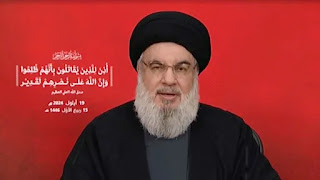Sunday, September 8, 2024
Predictions for the upcoming national elections in Bangladesh, scheduled for January 2024, are fraught with uncertainty due to several factors
Predictions for the upcoming national elections in Bangladesh, scheduled for January 2024, are fraught with uncertainty due to several factors.
Political Unrest and Boycotts: The Bangladesh Nationalist Party (BNP), the primary opposition force, has threatened to boycott the elections unless they are held under a neutral caretaker government. This has raised concerns that the election could be uncompetitive, especially if the BNP follows through on its threats. Without their participation, the ruling Awami League (AL), led by Prime Minister Sheikh Hasina, would face little opposition, potentially leading to a landslide victory for the AL(
CNA
)(
Atlantic Council
).
Awami League's Strong Position: The AL has a firm grip on power and enjoys control over key institutions, including law enforcement and the judiciary, which has caused critics to allege a slide towards authoritarianism. Despite this, Sheikh Hasina remains popular in certain segments due to her role in economic development projects, such as infrastructure improvements. If the opposition remains fragmented or boycotts the election, the AL is likely to secure another term(
The Daily Star
).
International Pressure: The U.S. and other international actors are watching closely, advocating for free and fair elections. The U.S. has imposed visa restrictions on individuals undermining the electoral process. While these efforts aim to ensure fairness, it is unclear if they will significantly impact the election's outcome(
Atlantic Council
).
In summary, if the BNP boycotts or remains suppressed, the Awami League is expected to win decisively. However, if opposition protests intensify and international pressure mounts, the election could become more unpredictable.
Election turnout expectations?
Voter turnout expectations for Bangladesh's 2024 election are heavily influenced by the current political climate. Several factors could affect turnout:
Opposition Boycott: If the Bangladesh Nationalist Party (BNP) follows through with its threat to boycott the election, turnout could be significantly lower. Previous boycotts, such as in the 2014 elections, saw turnout plummet to about 22%, largely due to opposition supporters staying home(
The Daily Star
)(
Atlantic Council
).
Political Unrest: With ongoing protests, strikes, and crackdowns on opposition members, many voters may feel discouraged or fearful of violence at polling stations. This could further depress turnout, particularly in urban areas where protests have been more intense(
CNA
).
Awami League’s Stronghold: In areas where the ruling Awami League (AL) holds significant influence, turnout may remain high, especially if the election proceeds without major disruptions. AL supporters could turn out in large numbers, buoyed by promises of economic progress and development projects(
Atlantic Council
).
International Scrutiny: Increased international pressure for a fair election, including the U.S. visa policy, may inspire more voters to participate if they feel the election will be more transparent. However, it’s unclear how much this external pressure will influence the overall process(
Atlantic Council
).
Overall, while the turnout could be robust in pro-AL regions, national turnout is expected to be lower than usual if the BNP boycotts or widespread unrest deters voters. A figure below 50% is likely, similar to previous contentious elections.
How's public sentiment?
Public sentiment in Bangladesh ahead of the 2024 elections is deeply divided and highly charged due to political tensions, economic challenges, and concerns about democratic integrity.
Widespread Frustration with Political Climate: Many citizens are disillusioned with the current political environment. The government’s crackdown on opposition leaders and activists, particularly members of the Bangladesh Nationalist Party (BNP), has led to concerns about increasing authoritarianism under Prime Minister Sheikh Hasina and the Awami League (AL). This has fueled resentment, especially among those who support the opposition or value democratic transparency(
CNA
)(
Atlantic Council
).
Economic Hardship Driving Discontent: Bangladesh has faced rising inflation, a foreign exchange crisis, and job shortages, which have created economic anxiety across the population. High costs of living and energy shortages are further eroding public confidence in the government’s ability to manage the economy effectively. Many are feeling the pinch, and economic discontent is feeding into the broader political dissatisfaction(
The Daily Star
).
Polarization Among Supporters: AL supporters tend to remain loyal, seeing the party as instrumental in economic progress and infrastructure development. Many credit Sheikh Hasina’s leadership with tangible improvements in the country’s overall trajectory, especially in rural areas. However, opposition supporters view the current government as increasingly autocratic and accuse it of stifling dissent and manipulating the electoral process(
Atlantic Council
).
Public Uncertainty About the Election: Many voters are skeptical about the fairness of the upcoming election, fearing it will be marred by irregularities, especially after past elections were criticized for flaws. International pressure, particularly from the U.S., for a fair electoral process has done little to assuage concerns that the 2024 elections may be predetermined(
Atlantic Council
).
In summary, public sentiment in Bangladesh is tense, with growing dissatisfaction over political repression and economic issues. The atmosphere is one of polarization and uncertainty, with many unsure whether the election will reflect the people's will.
Subscribe to:
Post Comments (Atom)
Israel killed Hezbollah leader Hassan Nasrallah in Beirut strike, group confirms
Hezbollah leader Sayyed Hassan Nasrallah gives a televised address on September 19, 2024, in this screenshot taken from a video. Al-Manar T...

-
It's the southernmost post of exit from Gaza and borders Egypt's Sinai peninsula. There are only two other border crossings from an...
-
Freelancing is a form of self-employment where individuals offer their skills and services to clients or businesses on a project-by-proje...
-
E-commerce, short for electronic commerce, refers to the buying and selling of goods and services over the internet. It has become a si...


No comments:
Post a Comment